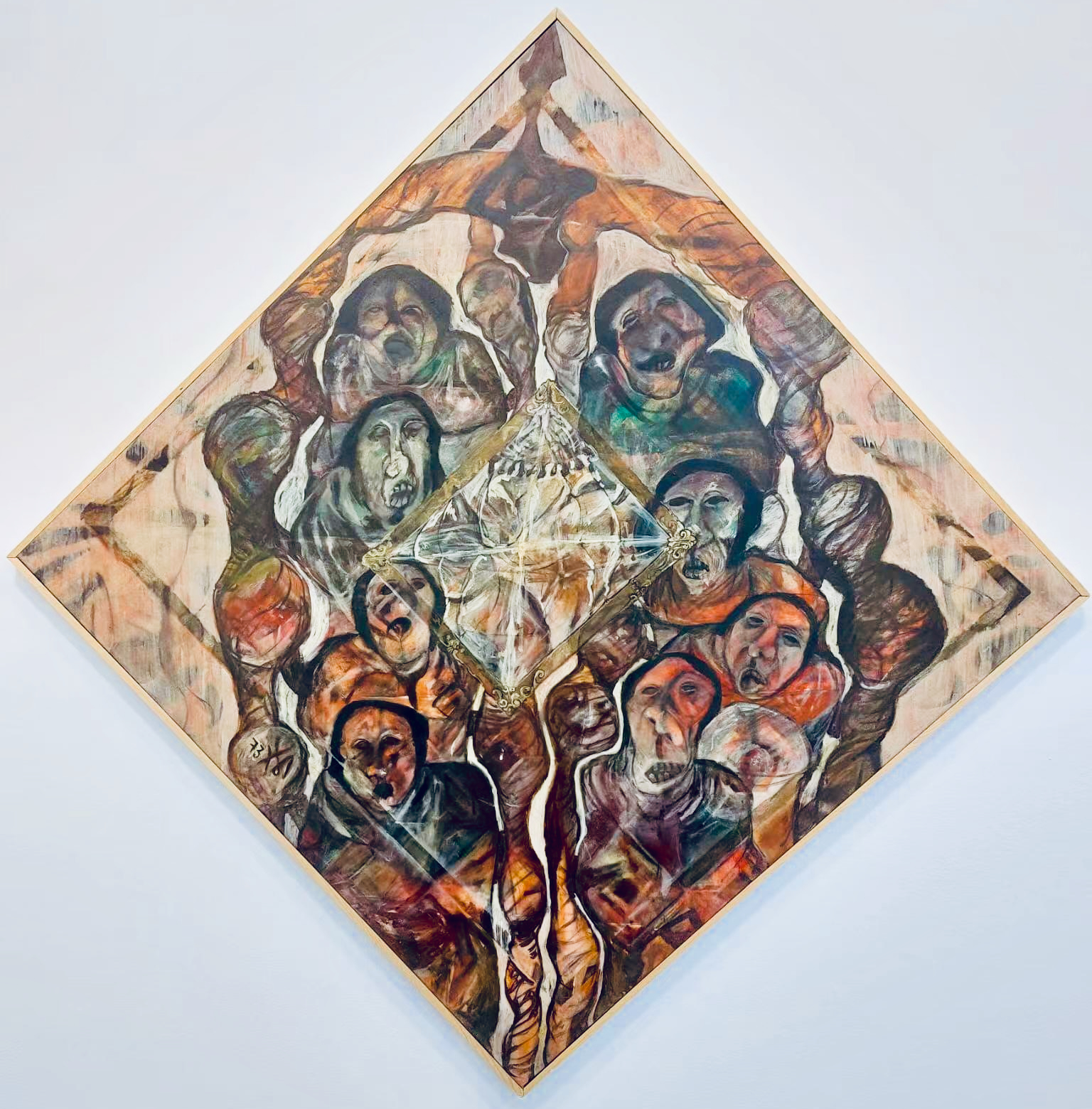
KAMALA'S LESSON
Here is a little piece I wrote about artist Kamala Ibrahim Ishaq’s on the occasion of her exhibition "STATES OF ONENESS" at Serpentine South Gallery in London (7 October 2022 - 29 January 2023).
In her talk at The Royal College of Art (October 7, 2022), Hans Ulrich Obrist asked Kamala about her teaching experience in the Khartoum art school, where she was head of the Painting Department for two decades. Kamala described her method of teaching as «working together and learning from each other» [...]
Read the full story here.

WHAT IS CALLIGRAPHY?
The conventional definition of calligraphy limits itself to writings only. That is the reason why I called this online series MY CALLIGRAPHY.
Back in May of 2019, I was contacted by the Art of Ink International Society to participate to an exhibition of contemporary calligraphy. As I happily accepted the invitation and sent 4 images of my calligraphy work, I received an answer from Ronald Nakasone, one of the organizers of this event...
Read the full story here.
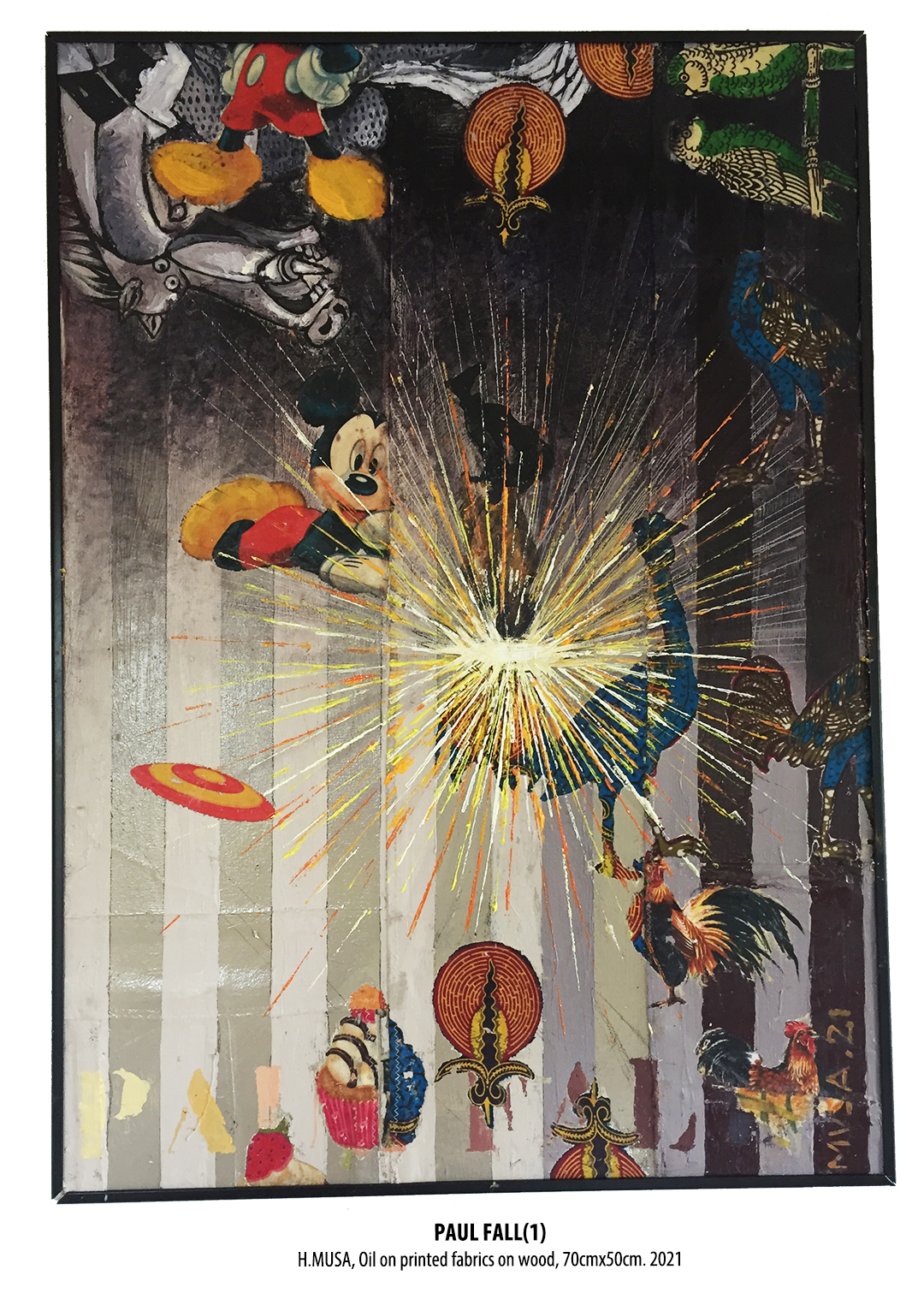
PAUL FALL - "DIE BANANE IST NICHT GUT!"
In a previous post, I explained « why curators eat artists ». To explain «why some curators can not eat artists», I need to tell you my Goethe Institute Banana Parable of January 2021.
Read the full story here.
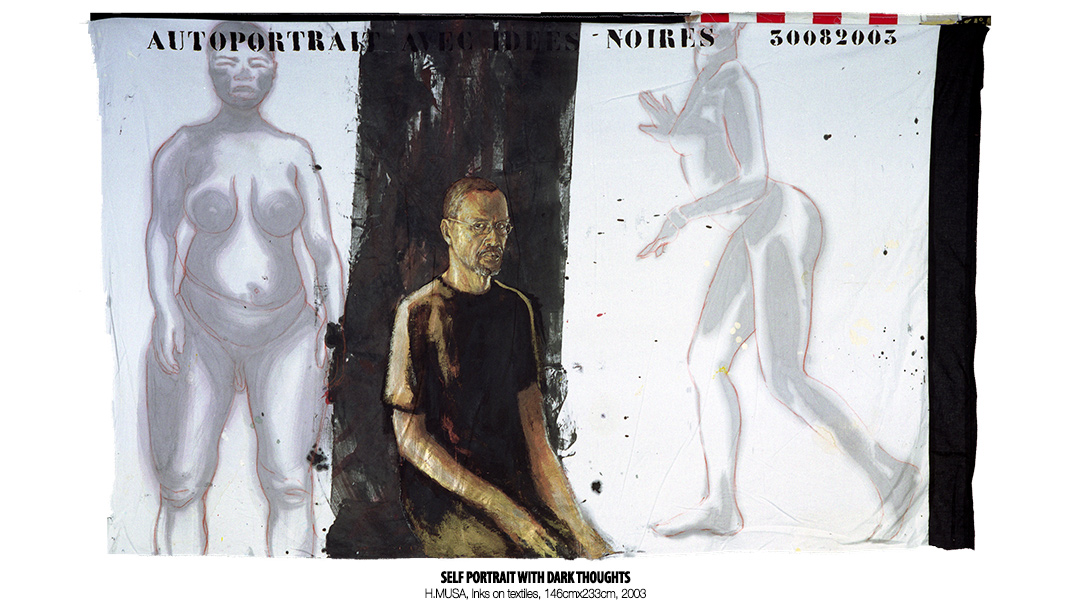
"A NASTY SHEEP STORY AT DAK'ART 2004!" [ARABIC]
In April 2021, my article "Une sale histoire de moutons à Dak’Art 2004!" (= A nasty sheep story at Dak'Art 2004!) was published in the second issue of ART versus SOCIÉTÉ thanks to Hervé Fischer and Magma International Journal.
Read my Arabic translation of this article here.

"WHO INVENTED AFRICANS?"
Contemporary African art is not the art of the Africans. It is the art that Euro-Americans expect Africans to produce. An « Artafricanisme », an artificial political construction of the 20th century, designed to fake cultural realities of Africa to the benefit of of the global market of contemporary culture. Meanwhile the Africans do not possess the necessary armes to stop this ethnic war machine advancing behind the mask of art. The only way out is to integrate the « Artafricanisme » system with the intention to introduce the contradictions that might block the machinery. [...]
Read more about "WHO INVENTED AFRICANS?" here.
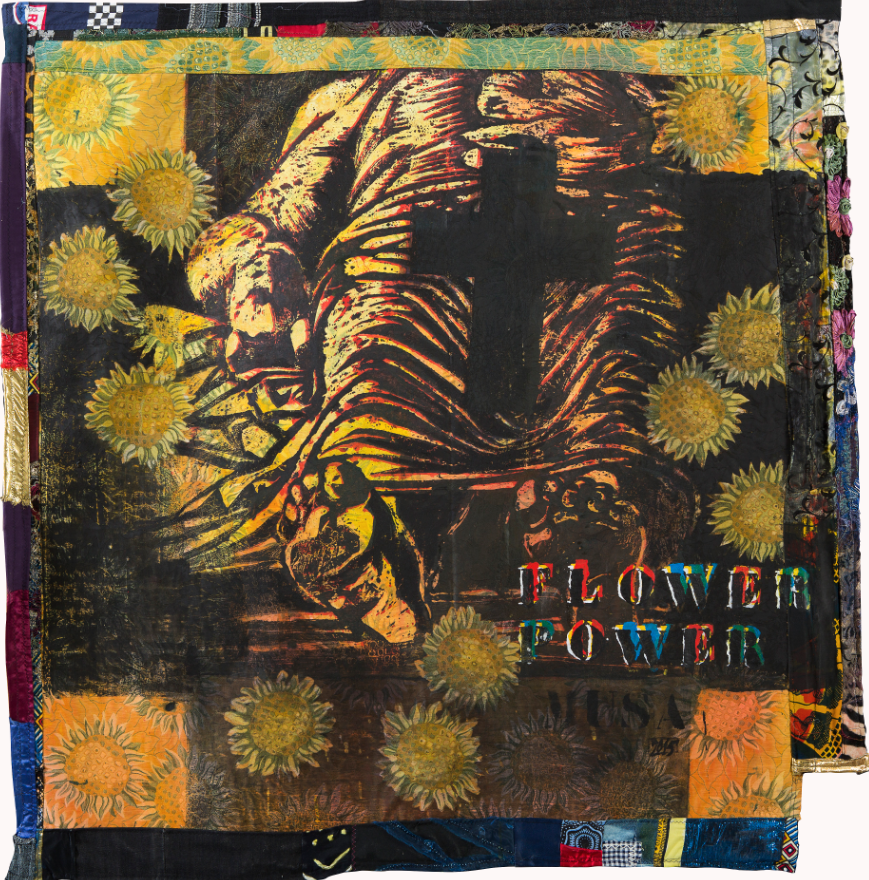
"CHRISTIAN WAR BOOTY"
Few years ago in one exhibition I held in Alès, a friend asked me if I am Muslim. When I answered "yes", he asked why I was making paintings of Biblical inspiration. At that time I remember I did many images on Christian icons:the Virgin, Jesus, Saint Sebastian, Saint Georges etc. [...]
Read more about "CHRISTIAN WAR BOOTY" here.

"THE MAKING OF SAINT BANANA"
Josephine Baker was created and used by the European intelligentsia as a figure of black womanhood as well as an icon of the « African Woman ». She took part in galas to finance French ethnographic expedition "Dakar - Djibouti" in Africa [...]
Read more about "THE MAKING OF SAINT BANANA" here.
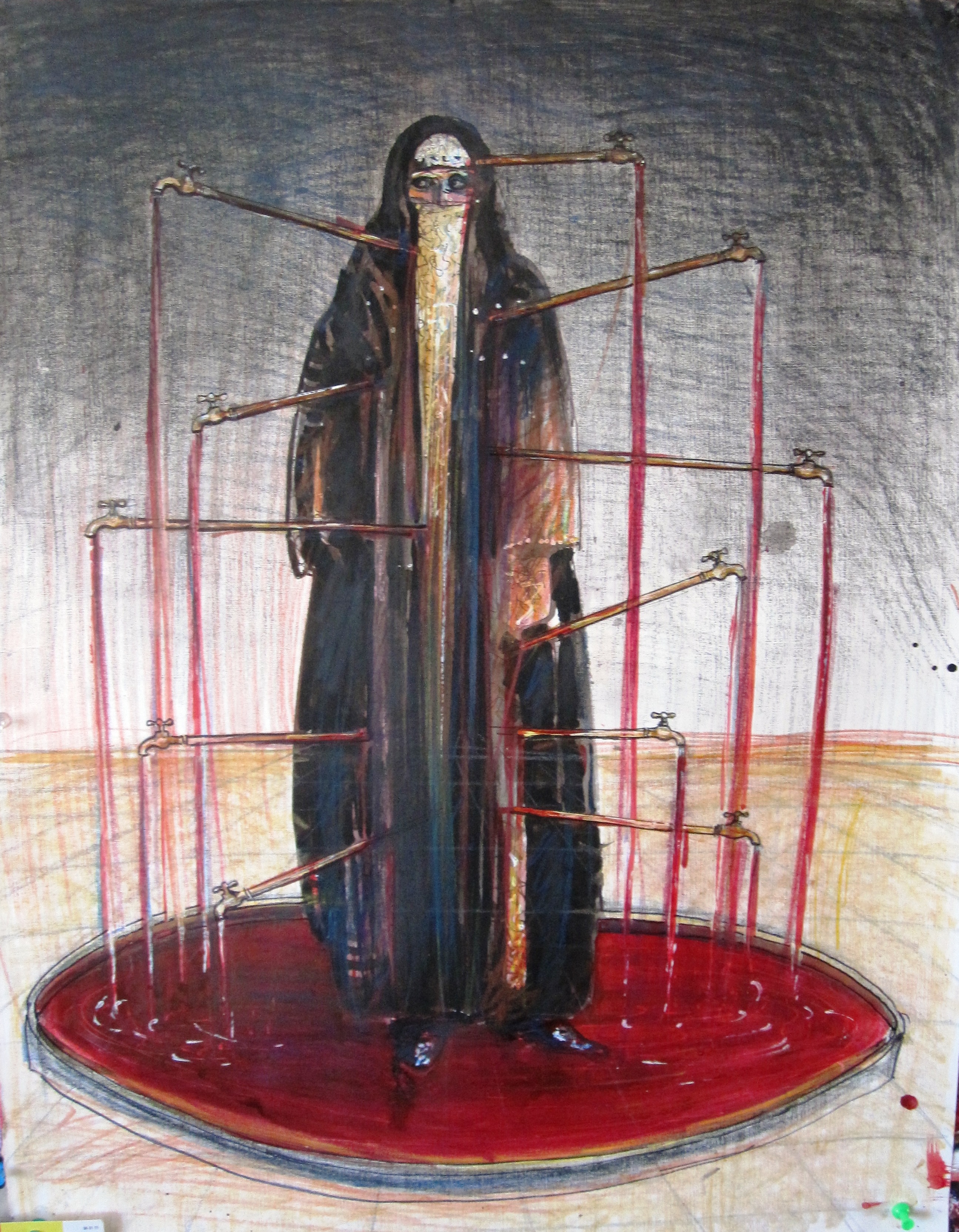
"CURATING THE TRUTH"
« Madam Sebastian » was part of my art installation project, in the collective exhibition "TOLD UNTOLD RETOLD" curated by Sam Bardaouil and Till Fellrath, in Doha (Qatar), in 2010. The title of my installation project was "The untold stories in the Arabian nights". It never happened.
Learn why, read the full story here.

"DANGERS OF SEEING"
The full version of the text I wrote to accompany my reflection around the I LOVE YOU WITH MY AK-47 artworks.
Read the full version of this text here.
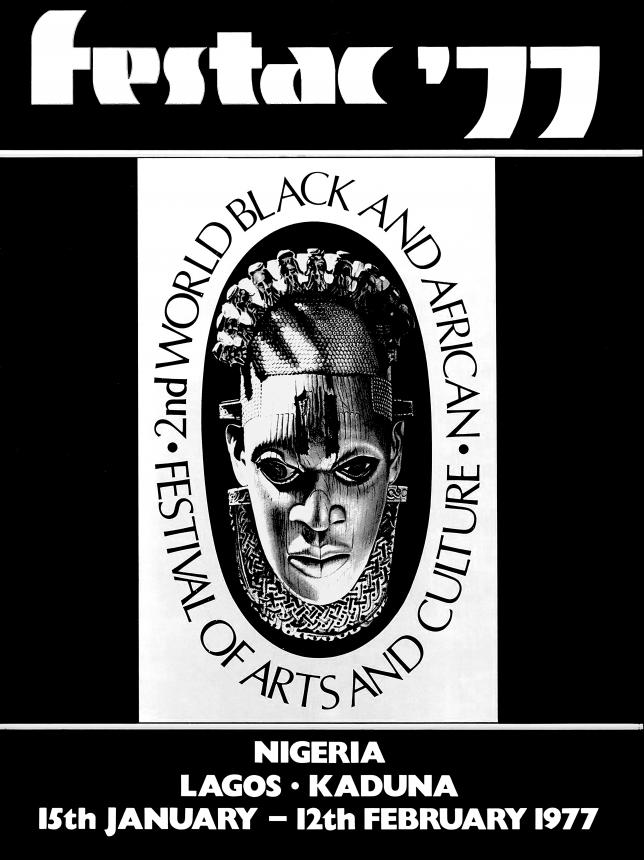
"TO WHICH PAN-AFRICANISM DO YOU BELONG?"
The full version of the text I wrote for Chimurenga's publication entitled « Festac’77, decomposed, an-arranged and reproduced by Chimurenga, Misdirections in music by Ntone Edjabe ». A text that ended up being censored and re-written without my consent in the published version of the book.
Read the full version of this text here.